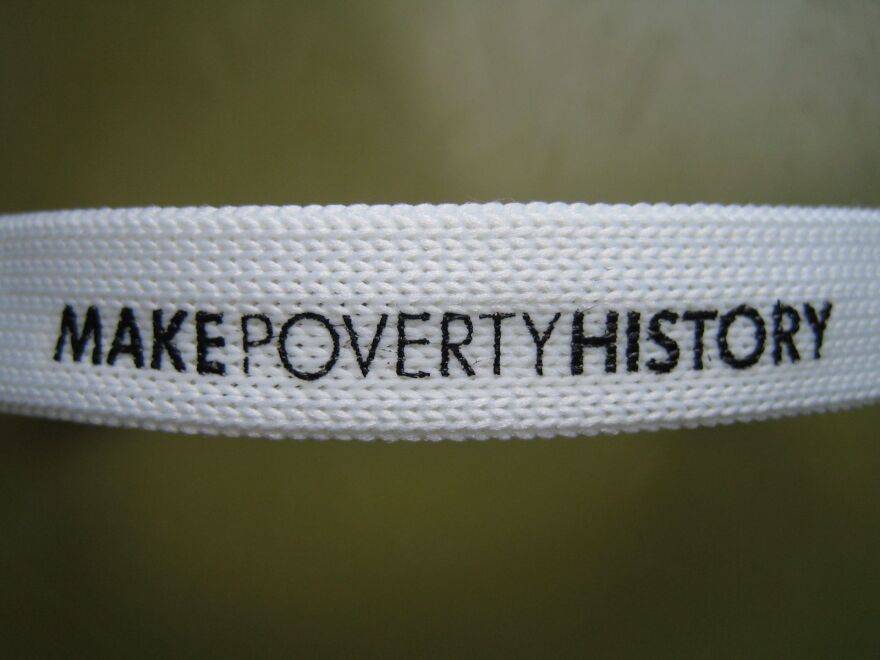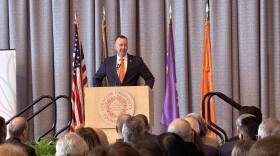In this year's State of the State address, Gov. Andrew Cuomo announced the formation of an anti-poverty task force in Rochester, which has the highest child poverty rate in the state. The initiative just got started, and its efforts are being closely watched by other areas in the state like Syracuse that also have high poverty rates.
Fred Daniel serves food in the dining center of Asbury Methodist Church. He says being a member of that community helps him deal with being homeless.
“And that's what keeps me grounded is by doing that every morning. But it takes people, getting along, being able to help each other. We can't do it by ourselves,” Daniel told the task force.
Daniel's was just one of many testimonials at the first Rochester Anti-Poverty Task Force meeting. The very official-sounding gathering was emotional, and long, and brought to the surface many of Rochester's ugliest attributes.
But despite the heavy subject matter, Mayor Lovely Warren says she's more hopeful than ever that the task force could bring cyclical poverty in the city to an end.
"That's what you all represent here. The change for people who have been living in Rochester year after year, family member after family member, the ability to change their lives and help them pull themselves out of poverty," said the mayor.
Warren says the poverty issue is about people, not numbers. Still, the numbers are scary. One-third of Rochester residents live below the poverty line. One in every two children goes to bed hungry.
But the meeting also highlighted men and women who had risen above their circumstances. Ambika Howell, a former Rochester City School District student, says going back to school changed the trajectory of her life. And, oddly enough, she found her calling.
"[I] decided to take the criminal justice program which was really good because I came from a shaky background, been through the criminal justice system, so what better track to go through? Of course, aced every class because I knew what was going on," Howell told the task force, to some laughter.
The meeting was not a forum for suggestions on how to address Rochester's poverty.That part will come later. But it did provide an opportunity for speakers to air their frustrations with a failing system, and provide context for why the coalition exists at all.
Wade Norwood is the chief program officer of Finger Lakes Health Systems Agency. He summed it up when he thanked Lt. Gov. Kathy Hochul and other officials for hearing his testimony.
"And despite the fact that so many have affirmed that this conversation feels like here we go again, the governor's commitment and your presence make this moment different,” said Norwood. “I personally view it as proof that Winston Churchill was correct when he said you can always count on Americans to do the right thing after they've tried everything else."
Hochul says the role of the governor's office in the initiative is not to presume to know all the answers, but to get those who do in a room together.
"We are not here to make decisions about the Rochester community. We are here as an incubator of ideas," she said.
Speakers addressed key issues in several areas -- housing, jobs, education, safety, and health -- and the systemic barriers to prosperity that exist within those groups.
The plan is to build teams to work specifically in those areas. Each team will work with a state agency partner to develop three or four tangible solutions to their distinct problems.
All this is expected to occur over the next several months. Peter Carpino, from the United Way, says setting time limits is key to keeping this initiative from losing momentum.
Carpino also announced the launching of the Anti-Poverty Task Initiative website, where people can go for more information as well as to get involved themselves
In the coming weeks, task force members will assemble a steering committee to oversee the whole process. And, Carpino says, that's when the real work begins.







